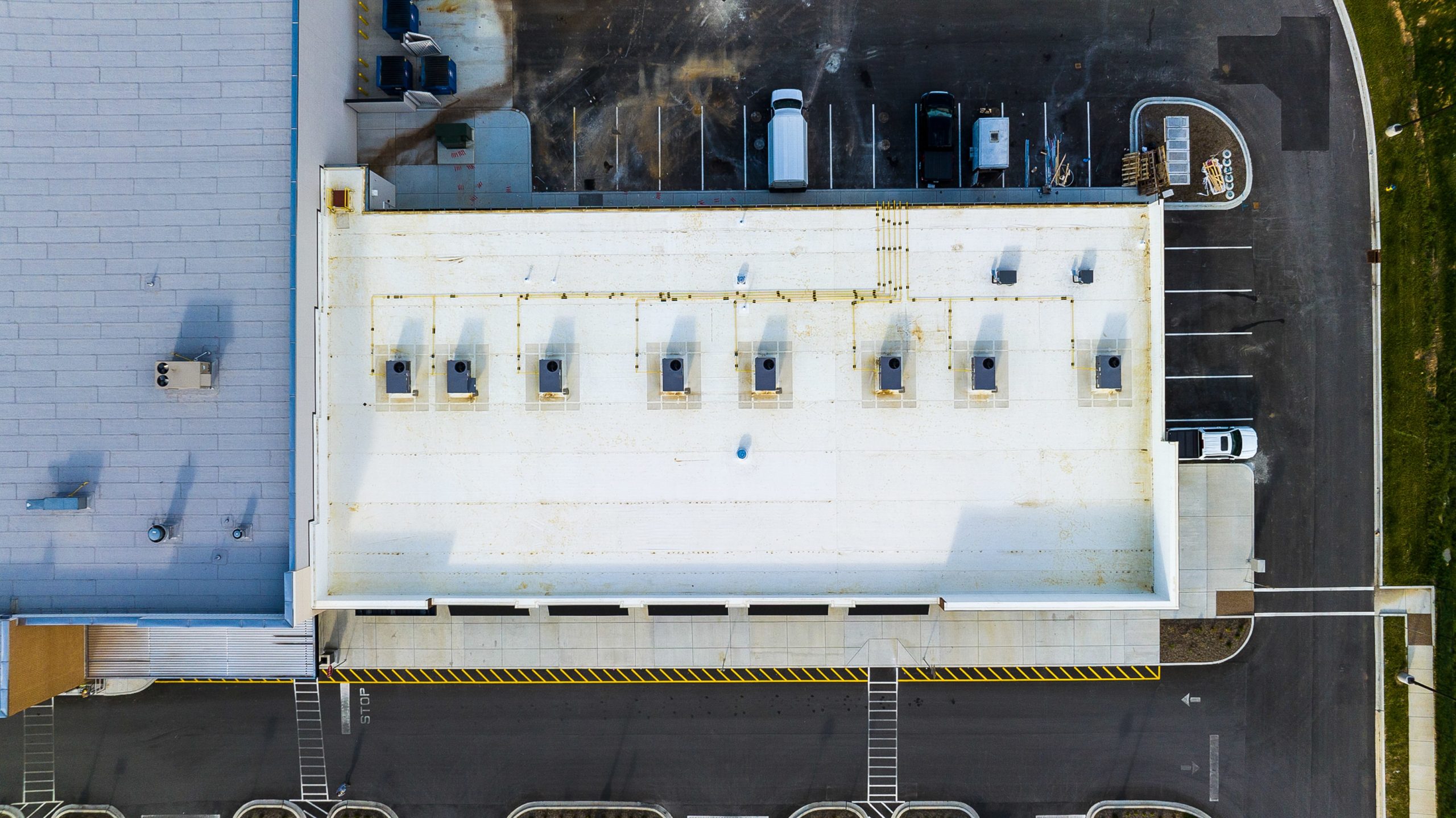Winter in the Southeast can be unpredictable. From chilly mornings to surprise snow flurries and heavy rainstorms, the weather in Tennessee and Alabama keeps commercial property owners and managers on their toes. While winters here may not be as harsh as up north, they still have the potential to cause significant damage to your commercial roof if you’re not prepared.
At Maxwell Roofing & Sheet Metal, we’ve seen firsthand how winter weather can impact commercial roofs—sometimes in ways you might not expect. In this post, we’ll separate fact from fiction and give you the essential information you need to protect your roof as the winter season approaches.
Fact vs. Fiction: What You Should Know About Winter Roof Damage
Fiction: Winters in Tennessee and Alabama are too mild to cause roof damage.
It’s easy to assume that our region’s mild winters mean less risk for roof damage. But don’t let the temperatures fool you. The reality is that temperatures in Tennessee and Alabama still dip below freezing, especially at night. That means your roof materials—whether metal, rubber, or asphalt—can contract and expand with fluctuating temperatures. Over time, this can weaken seals, create cracks, and lead to leaks. Don’t underestimate how quickly a “mild” winter can turn into a costly problem.
Fact: Snow and ice can cause leaks if not managed properly.
Nashville and Alabama seem to be getting more snow and sleet in recent years—both of which can cause leaks. The freeze-thaw cycle can do serious damage to your commercial roof. During the day, snow and ice melt, only to refreeze at night, potentially causing ice dams. These ice dams block proper drainage, trapping water on the roof and forcing it under the roof membrane, which can lead to leaks. It’s important to ensure your gutters and drainage systems are clear before any winter storm hits.
Fact: High winds are a serious threat to roof integrity.
People often think snow or ice are the main winter culprits, but winter storms in Tennessee and Alabama are often accompanied by high winds. Those winds can wreak havoc on your roof by loosening or even ripping off shingles, panels, or flashing, leaving vulnerable areas exposed. After any windstorm, it’s crucial to inspect your roof for any signs of damage, so you can address small problems before they grow into larger ones.
Types of Roofing Damage to Watch For
At Maxwell Roofing, we frequently see specific types of damage during the winter months. Here’s what to keep an eye out for:
- Cracks or splits in the roof membrane – Fluctuating temperatures can cause roofing materials to expand and contract, leading to cracks that allow water to seep in.
- Water ponding – Flat or low-sloped roofs are especially prone to ponding water after heavy rains, which can strain the roof’s structure over time.
- Damaged flashing – Flashing around roof edges, vents, and chimneys can loosen during windstorms, leaving vulnerable areas exposed to water.
- Ice dam formation – As mentioned earlier, ice dams can block water flow, forcing it underneath your roof and causing leaks.
If you notice any of these issues, addressing them sooner rather than later can prevent more serious and expensive damage down the road.
Advice to Protect Your Roof This Winter
Preparation is key when it comes to protecting your commercial roof during winter. Here are a few practical steps you can take to minimize winter-related damage:
- Clear your gutters and downspouts – Ensure that all drainage systems are free of debris before winter hits. Clogged gutters can lead to standing water, which may freeze and cause damage.
- Schedule regular roof inspections – A professional roofing inspection in the fall and winter can help you proactively avoid problems with preventative maintenance.
- Trim nearby trees – Overhanging branches can break off during windstorms and cause damage to your roof. Keep trees trimmed back to reduce the risk.
- Install proper insulation – Good insulation helps regulate temperature, reducing the risk of ice dams and protecting your roof from the damaging effects of expansion and contraction.
By taking these steps, you can keep your roof in great shape throughout the winter season, saving yourself both time and money in the long run.
Let Maxwell Roofing Help Protect Your Roof
Winter weather may bring challenges, but with the right plan, you can ensure your commercial roof stays in top condition. At Maxwell Roofing & Sheet Metal, we have decades of experience helping property managers and building owners protect their roofs through every season.
Contact us today to schedule an inspection or learn more about how we can help you keep your roof strong all winter long.

